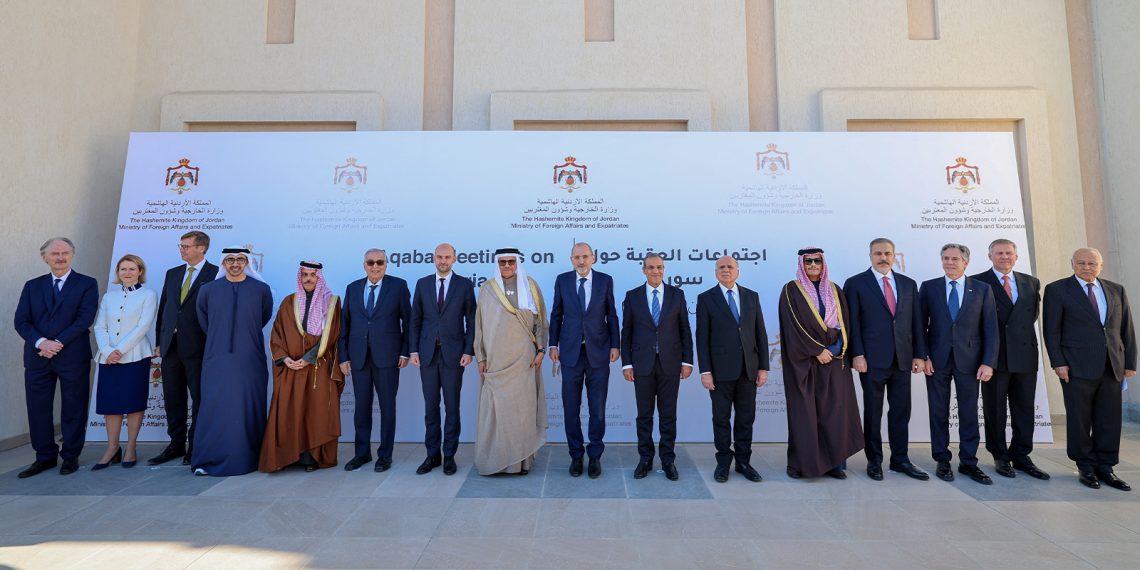The Arab Ministerial Contact Committee on Syria convened in Aqaba on Saturday, reaching consensus on key priorities to support the Syrian people and initiate an inclusive political transition under UN auspices. However, disagreements emerged regarding the role of Islamist groups and the structure of Syria’s future political system.
Official statements emphasized the goal of establishing a modern, democratic state that preserves Syria’s territorial integrity, but concerns were voiced over the potential rise of extremist factions influencing the political landscape.
Key Takeaways from the Final Communiqué
The final statement underscored respect for the will of the Syrian people and the importance of launching a peaceful and inclusive transition in line with UN Security Council Resolution 2254. Highlights included:
- Transitional Governance: Formation of a governing body representing all political and social forces, including women, youth, and civil society.
- New Constitution: Drafting a constitution to pave the way for free and fair elections.
- Military Ceasefire: Immediate cessation of hostilities and equitable justice for all citizens.
- Preservation of Institutions: Safeguarding Syrian state institutions to ensure they serve the people effectively.
Differing Perspectives on Syria’s Transition
Hani al-Jamal, head of the International Studies Unit at the Arab Center in Egypt, described the roadmap as ambitious and pivotal. “The committee aims to establish a political system that fulfills the aspirations of the Syrian people,” he told 963+.
Al-Jamal noted recommendations such as drafting a comprehensive constitution and exploring political models—whether presidential, parliamentary, or federal. However, he cautioned that regional and international acceptance remains a significant challenge, particularly regarding the role of armed factions.
“There is considerable Western and Turkish pressure to legitimize certain groups, reflecting broader efforts to impose a political framework aligned with external interests,” he warned.
Divisions Over Islamist Groups and HTS
The inclusion of Islamist groups, particularly Hay’at Tahrir al-Sham (HTS), sparked significant debate. Countries like the UAE, Jordan, and Lebanon expressed concerns over the potential dominance of Islamist factions in a future Syrian government. “The greatest risk lies in extremist groups gaining power, which could destabilize the region,” said a Lebanese diplomat, referencing the governance record of such groups.
In contrast, Saudi Arabia and Qatar appeared more open to HTS’s participation, provided the group adheres to international norms. Turkey also signalleda willingness to cooperate if HTS committed to these standards. Turkish Foreign Minister Mevlüt Çavuşoğlu remarked, “The role of certain armed groups in toppling the previous regime cannot be ignored, but it must not lead to extremist agendas taking hold.”
International Engagement and Foreign Interference
U.S. Secretary of State Antony Blinken confirmed direct contact with HTS, warning the group of isolation if it failed to meet conditions such as dismantling chemical weapons, protecting minorities, and ensuring Syria is not used as a base for regional aggression.
“These conditions are the minimum requirements for regional stability and preventing further tensions,” Blinken said.
Ramzi Khoury, a Jordanian journalist and member of the Royal Committee to Modernize Jordan’s Political System, emphasized the need to address foreign interference. “The Arab League and the UN must play a decisive role in limiting external intervention, as it obstructs efforts to establish a democratic Syrian state,” he told 963+.
Khoury also stressed the importance of disbanding armed groups, reintegrating their fighters, and drafting a constitution that guarantees equality and fosters program-driven political parties.
Debates on Syria’s Political System
The structure of Syria’s future political system remained a contentious issue. Some countries advocated for a centralized model to maintain territorial unity, while others preferred a federal system to distribute power more equitably.
“Any political model that risks dividing or weakening Syria must be avoided,” Khoury cautioned.
Al-Jamal added, “Turkey’s increasing influence, supported by its recent embassy reopening and backing of armed groups, will undoubtedly shape the outcome of Syria’s political future.”
Humanitarian Support and Sovereignty
The final communiqué condemned Israeli airstrikes on Syrian territory as violations of international law, calling on the UN Security Council to intervene.
“Arab support for Syrians must include addressing these violations and ensuring their right to reclaim occupied territories,” Al-Jamal emphasized.
The meeting also stressed the importance of humanitarian aid, coordinated with UN organizations, to create conditions conducive to refugee returns.
“The Syrian people, in all their diversity, must be at the heart of the transition process,” said an Egyptian diplomat. “The success of this effort depends on enabling Syrians to rebuild their state free from external control.”
Jordanian researcher Sarah Swilem criticized certain Arab states for imposing guardianship over Syria under the guise of combating extremism. “These policies hinder the prospects for a genuine democratic experiment,” she argued, adding that true stability requires accountability for crimes committed in Assad’s prisons.
“Syria’s stability can only be achieved through genuine internal resolve, supported by sincere international efforts,” Swilem concluded.
This article was translated and edited by The Syrian Observer. The Syrian Observer has not verified the content of this story. Responsibility for the information and views set out in this article lies entirely with the author.


